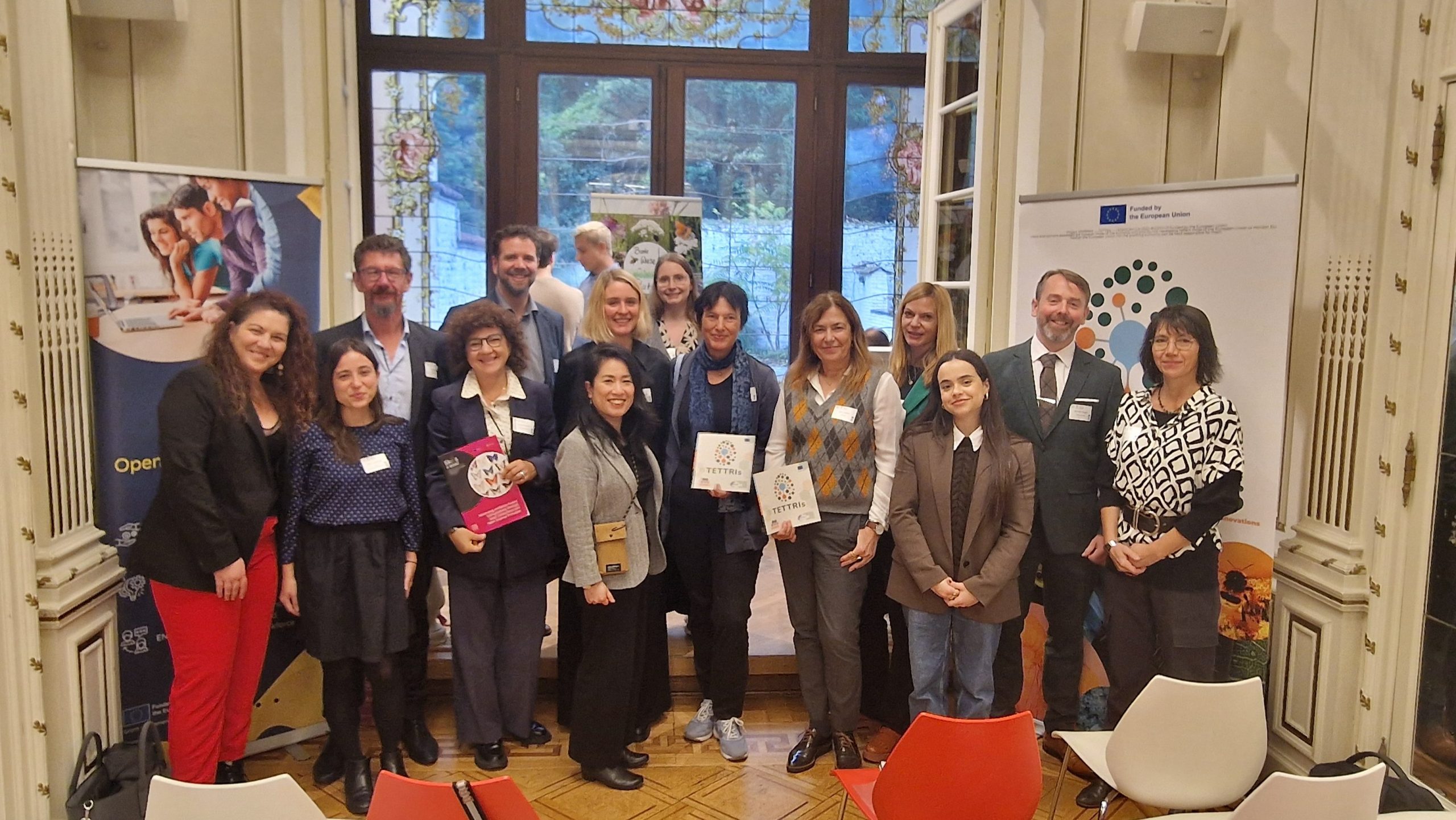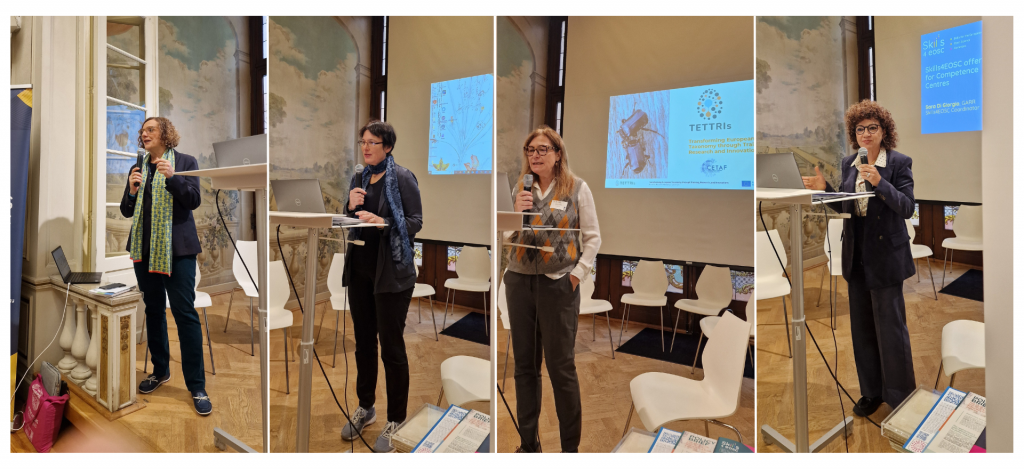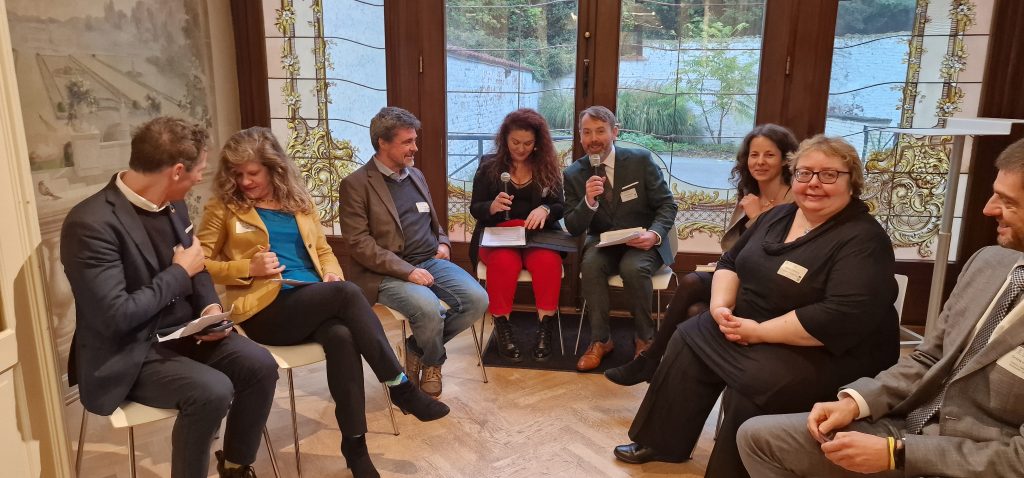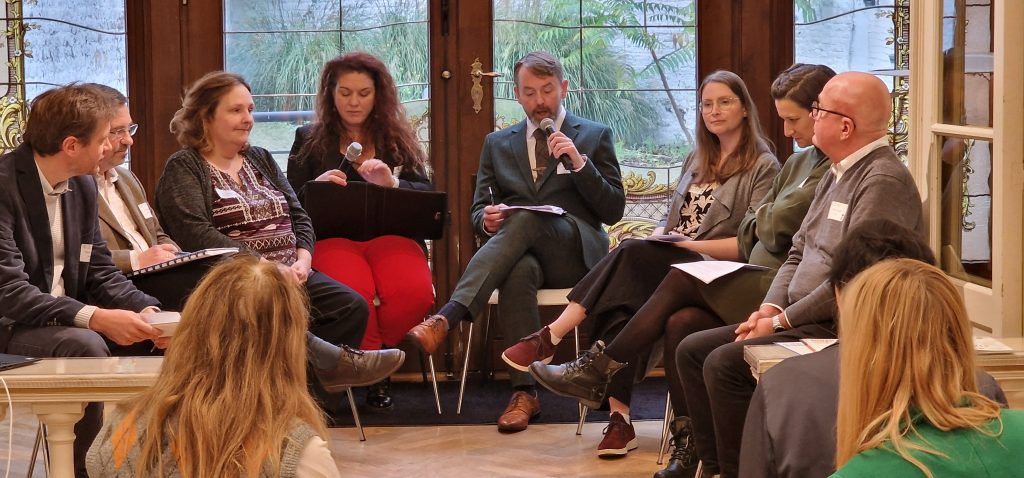On November 6th, TETTRIs joined forces with another EU-Funded project, Skills4EOSC to host a stakeholder lab at Vienna House in Brussels.
The event brought together representatives from policy, industry, education, environment and research. Attendees came from all over Europe to discuss the multifaceted need to integrate open science skills into these sectors, with taxonomy highlighted as an example where open data has multi-sectorial significance.

Take home messages were to strengthen interdisciplinary research, utilize citizen science and foster collaboration across multiple sectors. To make a positive impact on biodiversity we need to build taxonomic capacity, make data available and #communicate. Because how can you protect what you don’t know is there?
Kicking off the event were opening speeches from the director of the Vienna House, Michaela Kauer, the director of Vienna Natural History Museum, Katrin Vohland, Executive Director of CETAF, Ana Casino and the Project Coordinator of SKILLS4EOSC, Sara Di Giorgio (GARR)

We had two panel discussions with plenty of questions from the audience. As the lab was directed at multiple sectors, we had the opportunity for people to see real taxonomic collections and study beautiful specimens of insects under the microscope.
Panel Discussion 1:
Interdisciplinary taxonomic capacity needs in a multi-faceted approach

Questions centered around collaboration between sectors as well as EU projects. The role of Citizen science in gathering data. The importance of training the next generation. And how industry and governments can support open science and taxonomy.
Bernhard Vlanabitnig expressed the need to boost taxonomic capacity with the memorable line of “Make Taxonomy Great Again!” Colombe Warin spoke of the Research and Innovation funding and how the EC sees the added value in collaboration between projects. Frank Vassen used the extensive data from citizen science on birds and how that is a model on the power of citizen to collect big data sets. On the industry side the role of monitoring and open science in regards ESG was discussed. Lydia Korinek and and Milena Dobreva talked about the need to map career paths for taxonomists if we are to grow a new generation within the field. Dimitris Koureas brought the example of DiSSCo, a pan-European scientific collections infastructure.
Panel Discussion 2:
Impact of ensuring trained experts

The need for better and free access to taxonomic data for the Global Biodiversity Framework was highlighted by Pierre Huybrechts. Andreas Gumbert talked about what is happening in Europe and how data is used in decision making. As a young researcher, Amalie Höcherl drew attention to the need to increase awareness of taxonomic courses. Many students are interested but they need to dig for the opportunities. Career paths are also a big concern for the next generation and this is where industry could play a role. Rena de Mey said that companies such as Wienerberger use taxonomists and citizen scientists to monitor the areas they impact. With his experience in ECSA, Enrico Balli talked of the advantage of involving more people in data collection. But also that local knowledge should be part of the research. Involving people with specific, local knowledge is important.

In the break participants could mingle and pick up a copy of our most recent policy briefs: The Power of Reference Collections for Biodiversity Monitoring and The Case for Biological Nomenclature in Europe.
As the lab was directed at multiple sectors, we had the opportunity for people to see real taxonomic collections and study beautiful specimens of insects under the microscope. Researchers from the Stuttgart
State Museum of Natural History and the Royal Belgian institute of Natural Sciences brought microscopes and beetles, bees and parasitic wasps which look gorgeous under a lens.

A full report on the Stakeholder lab will follow soon. Find more pictures of the event at https://tettris.eu/gallery/
Pictures by Kiesel Megumi, Heimo Rainer, Michael Magee and Alba Garriga.

